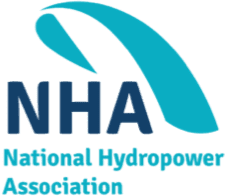- Show all
- Asset Management
- Buoy
- Canal
- Climate Change
- Controls
- Dam Safety
- Environmental Impact
- Fish and Aquatic Resources
- Future Grid
- Generator
- Governor
- Hydraulic Forecasting
- Hydraulic Optimization
- Hydrokinetic
- Intake Gates
- Markets
- Penstock
- Regulatory Process
- Renewable Integration
- Sediment Transport
- Shoreline and Riparian Resources
- Spillgates
- Tidal
- Transmission Services
- Turbine
- Water Management
- Water Resources
- Water Systems
- Wave
Pumped Storage
Commissioning Prize for Pump Storage
Lead Companies
PNNL
Lead Researcher (s)
- Bo Saulsbury
Furthering Advancements to Solve Time to Commissioning Prize (FAST Commissioning Prize) that will seek innovative ideas on ways to reduce the time and costs associated with PSH from concept to commissioning. PNNL supports the technical analysis, as well as the voucher program to be supplied to prize finalists and winners.
Technology Application
Pumped Storage
Research Category
Regulatory Management Process
Research Sub-Category
Status
ongoing
Completion Date
TBD
Conventional Hydro
Data-driven benchmarking models
Lead Companies
Hydropower Research Institute
Lead Researcher (s)
- HRI Technical Steering Committee
The goal of this work is to leverage HRI's aggregated data set to benchmark units or a fleet to normal operational behavior defined by the entire operational data set.
Technology Application
Conventional Hydro
Research Category
Regulatory Management Process
Research Sub-Category
Status
ongoing
Completion Date
2022
Conventional Hydro
Developing Tools to Evaluate Environment-Flexibility Tradeoffs [HydroWIRES]
Lead Companies
ORNL
Lead Researcher (s)
- Brenda Pracheil, prachielbm@ornl.gov
This project will build on previous research led by the labs to understand the flexibility and environmental tradeoffs involved in hydropower operation. Researchers will develop a user-friendly tool that helps operators analyze the flexibility-environmental tradeoffs of hydropower operations. This is expected to lead to improved support of variable renewable generation without sacrificing river ecosystem health. Technology Application
Conventional Hydro
Research Category
Regulatory Management Process
Research Sub-Category
Regulatory Process
Status
ongoing
Completion Date
TBD
Marine Energy
Environmental Compliance Cost Analysis (Marine Energy Environmental Compliance)
Lead Companies
Sandia National Laboratories
Lead Researcher (s)
- Jesse Roberts
The marine and hydrokinetic (MHK) industry has a vital role in the U.S. clean energy strategy by providing a renewable, domestic energy source that can help meet the U.S. national demand by offsetting the need for traditional power sources that support foreign dependencies and can have detrimental long-term impacts on the environment that put the U.S. at risk. As the MHK industry evolves with new technologies, improved business model paradigms, and expected grid features (i.e., reliability, resilience, flexibility, sustainability, affordability, and security), costs for environmental compliance need to be delineated and reduced to realize MHK’s potential contributions to the U.S. energy portfolio. Licensing, permitting, and other compliance process costs are not well understood; therefore, strategies to reduce costs cannot be formulated and implemented effectively. The important issue addressed here is to delineate and quantify costs for permitting and licensing, including monitoring and adaptive management, and to develop cost reduction pathways and strategies that enable emerging MHK technologies to attain utility scale contributions to our nation’s renewable energy portfolio.
Technology Application
Marine Energy
Research Category
Regulatory Management Process
Research Sub-Category
Hydrokinetic
Status
complete
Completion Date
2021
Conventional Hydro
Environmental, Economic and Social Trade-Offs of Hydropower Relicensing: A Case Study of the Yuba River Development Project
Lead Companies
University of California, Berkely
Lead Researcher (s)
- Joseph Rand
Technology Application
Conventional Hydro
Research Category
Regulatory Management Process
Research Sub-Category
Environmental Impact
Status
complete
Completion Date
2018
Conventional Hydro
Conventional Hydro
Hydro-Based Microgrids to Support Grid Resiliency during Wildfires [HydroWIRES]
Lead Companies
PNNL
Lead Researcher (s)
- Abhishek Somani, abhishek.somani@pnnl.gov
As wildfires are becoming more severe and commonplace in the U.S., researchers are evaluating how to mitigate the impacts from west coast wildfires on the grid since power is often critical for life-saving services. This project will create a framework to leverage hydropower resources to ensure grid resilience during and after wildfire events. Technology Application
Conventional Hydro
Research Category
Regulatory Management Process
Research Sub-Category
Asset Management
Status
ongoing
Completion Date
TBD
Conventional Hydro
Operational Alternative Evaluation for the 2014/2024 Columbia River Treaty Review in a Participatory Modeling Framework
Lead Companies
University of Idaho
Lead Researcher (s)
- Mark Cecchini-Beaver
Basin-scale water resource management entails consideration of competing— sometimes conflicting—operational goals and constraints. In the Columbia River Basin, legal, social, technological, and ecological changes suggest a need for a collaborative process to devise and select new water management strategies. Computer modeling for decision support offers a compelling method for using hydrologic simulation models as tools for engaging stakeholders in the process of envisioning, testing, and evaluating novel operational alternatives. This study details the process of developing a daily timestep simulation model of the mainstem Columbia and Kootenay Rivers and integrating the results of a survey to create operational alternatives that implement stakeholder priorities for river management. These alternatives are then modeled over a sixty-nine year period of record and compared to each other and a Base Case scenario using a suite of performance measures that provide information related to flood control, hydropower, instream flow, recreation, navigation, and shoreline goals. A key result of this comparison is that coordinated management of Canadian storage facilities can improve downstream ecological flow objectives at the cost of hydropower generation and certain shoreline objectives at Canadian reservoirs. Distributive and integrative solutions to these tradeoffs are proposed as potential opportunities to reshape the transboundary management regime of the Columbia River Treaty.
Technology Application
Conventional Hydro
Research Category
Regulatory Management Process
Research Sub-Category
Water Management
Status
complete
Completion Date
2013
Don’t see your waterpower research?
Have questions about WaRP?
Contact Marla Barnes at: marla@hydro.org



